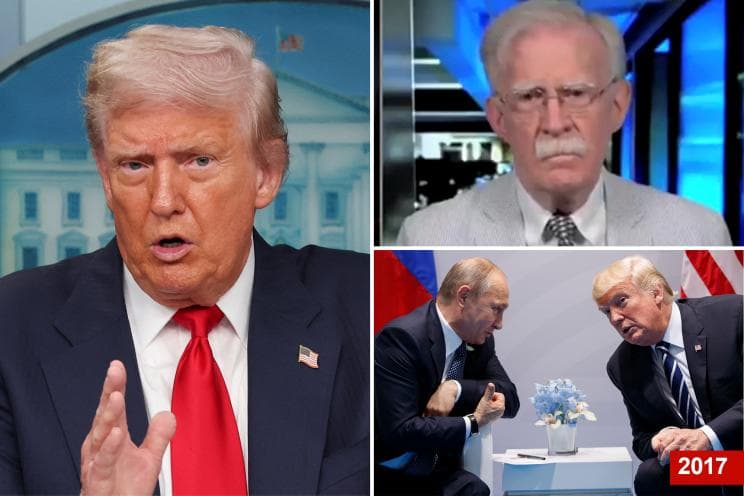Trump Slams Media Ahead of Putin Meeting, Claims "Winning at Everything"
In a fiery prelude to his highly anticipated meeting with Russian President Vladimir Putin, former President Donald Trump launched a pointed critique of the media, asserting that their coverage of his presidency is excessively negative. Trump’s comments come as he prepares for discussions that could shape the future of U.S.-Russia relations.
Background & Context
Donald Trump"s relationship with the media has been contentious since he first announced his candidacy in 2015. Known for his combative approach, Trump frequently labels unfavorable reports as "fake news," a term he has popularized during his time in office and beyond. As he gears up for a critical meeting with Putin—his first since leaving office—Trump is once again directing his ire at journalists, claiming they misrepresent his achievements and intentions.
The meeting is set to take place on American soil, a detail Trump emphasized to counter claims that such an arrangement inherently favors Russia. The significance of this meeting cannot be overstated; it arrives amid heightened tensions between the two nations and ongoing scrutiny of Russia"s influence on U.S. politics. As previously reported, the geopolitical landscape remains fraught, and the stakes are high for both leaders.
Key Developments
Trump expressed his frustration with the media during a recent statement, specifically targeting critics like former National Security Advisor John Bolton. Bolton, who was dismissed from his position in 2019, has been vocal about his concerns regarding Trump"s dealings with Russia. "They constantly quote fired losers and really stupid people," Trump remarked, dismissing Bolton"s assertion that "Putin has already won" in the context of the upcoming meeting.
In a characteristic display of bravado, Trump claimed, "We are winning at EVERYTHING," challenging the narrative that he has been outmaneuvered by foreign adversaries. He further suggested that even if he had made concessions such as acquiring cities like Moscow and Leningrad in negotiations, the media would still find a way to label his efforts as a failure. "If I had gotten Moscow and Leningrad for free as part of a deal with Russia, fake news would say that I made a bad deal!" he exclaimed, illustrating his belief that media bias is unwavering.
Broader Impact
Trump"s latest comments reflect a broader trend of distrust between political leaders and the press, particularly in the context of international diplomacy. Experts argue that Trump"s approach may hinder constructive dialogue with Russia, as his criticisms could alienate potential allies and complicate negotiations. The media"s role in framing public perception of these high-stakes meetings cannot be underestimated, as it influences both domestic and international audiences.
Historically, media coverage has shaped the narrative surrounding U.S.-Russia relations, with journalists often acting as intermediaries between the public and government actions. In light of Trump"s remarks, analysts are questioning whether the ongoing media backlash will affect public opinion regarding the legitimacy of the upcoming meeting. As tensions rise, the implications of Trump"s combative stance could reverberate beyond the immediate context of the meeting, potentially affecting future diplomatic interactions.
What"s Next
As Trump prepares for his meeting with Putin, the political landscape remains fluid. Observers are keenly watching for any shifts in tone or policy that may emerge from the discussions. The meeting is poised to address critical issues such as cybersecurity, nuclear arms control, and regional conflicts, all of which carry significant implications for national security.
Looking ahead, it is essential to monitor how both leaders navigate the media narrative that will inevitably follow their discussions. Will Trump continue his attacks on the press, or will he adopt a more conciliatory tone in light of the outcomes of the meeting? The answers to these questions may not only influence U.S.-Russia relations but could also shape the political discourse in America as the 2024 presidential race approaches.
For more insights into the complex dynamics of international politics, see our related coverage on Trump"s upcoming meeting with Putin.



![[Video] Gunfire between Iraqi security forces and Sadr militias in Baghdad](/_next/image?url=%2Fapi%2Fimage%2Fthumbnails%2Fthumbnail-1768343508874-4redb-thumbnail.jpg&w=3840&q=75)
